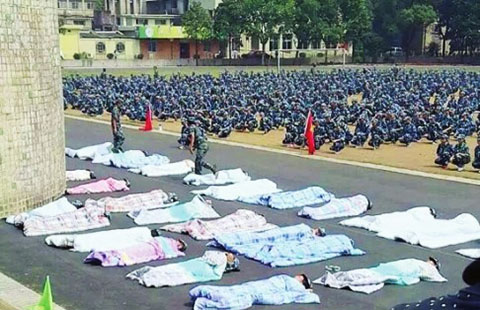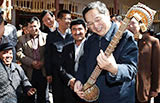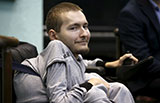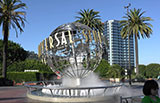Top US hospital taps Chinese medical tourism market
By Shan Juan (chinadaily.com.cn) Updated: 2015-09-18 18:31To further tap into the Chinese medical market, the leading US hospital, Cedars-Sinai Medical Center launched a partnership with a Beijing-based medical tourism agency luring rich Chinese to the hospital for medical treatment on Friday.
Located in Los Angeles, California, the non-profit hospital became famous in China after the movie star Angelina Jolie received a preventative double mastectomy at the hospital after genome testing. The tests showed she had breast cancer-prone genes of BRCA1 and BRCA2.
Spencer K. Koerner, medical director of the international health center of the hospital extended welcome to Chinese patients coming to their hospital for world-class treatment and had a rosy outlook for the Chinese market.
"We expect 250 patients from the Chinese mainland each year in three to five years," he said, and there are complementary services like Chinese-speaking staff and interpretation services to make it easier for the patients, he said at a partnership signing ceremony in Beijing.
The hospital set up the cooperation with Saint Lucia Consulting, a company helping wealthy Chinese seeking high quality medical services overseas, according to the company CEO Cai Qiang.
Saint Lucia, under the partnership, would refer Chinese patients to the hospital and charge the patients for services like professional translation of the medical records, accommodation arrangement in the US, and escort during the treatment.
But the hospital doesn't pay for the referral, stressed Koerner.
He added that the partnership is non-exclusive and they have three other local partners in China.
Currently, the hospital receives on average of 1,000 international patients each year, mostly from gulf countries including Qatar and United Arab Emirates.
"The number has been rising constantly in recent years. And as we get known by more Chinese people we'll have more patients from here," he said.
The price is the same for international patients as Americans and currently many come for cancer treatments from overseas, according to him.
Industry analysts put the number of potential patients seeking such high-end medical treatment overseas from the Chinese mainland at around 3,000 each year.
"It's always a niche market and only for a tiny part of the super rich," said Cai Qiang. His company, opened in 2011, helped send around 100 patients overseas for medical treatment annually.
- Children who were kidnapped can now be legally adopted
- Chinese 'Red Notice' fugitive repatriated from US
- Thousands of officials disciplined
- Villagers angry at verdict on fatal fire
- New audits of officials to eye data on environment
- China 'open to' cybersecurity teamwork
- 24 intercity railways to link Beijing, Tianjin and Hebei
- Fewer mothers pass HIV to babies
- Beijing launches state-owned app to compete with Didi and Uber
- Australian father takes on drug dealers







